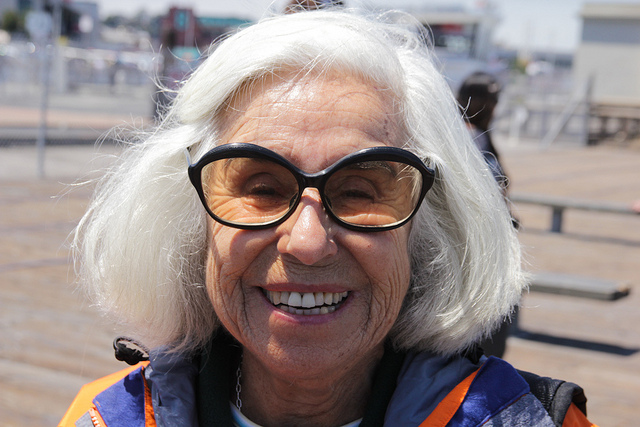
Our most valuable citizens are the most vulnerable in our system.
I recently came across a video telling the story of Donna, a 76-year-old subsistence farmer who grows vegetables and raises her own chickens.
She is vibrant, creative, and weaves rugs to supplement her income. She created this new lifestyle for herself after she retired. In many ways, Donna represents what many younger people aspire to become—creative and engaged, even after retirement. And yet Donna, who has worked her whole life (including now), cannot get by financially and must go to a food shelf to supplement her needs.
The message of the video—that there is no shame in reaching out for help—is an important one. Many aging adults, who have been independent their entire lives, have difficulty asking for assistance.
An equally important and unspoken message, is that there is shame—our society’s shame—for so many seniors about turning to food pantries to feed themselves.
AARP The Magazine reported in September 2014 that nearly 16 percent of adults over 60 are food insecure, which means that food supply doesn’t last between checks, that there is not enough money for balanced meals, or that meals are actually skipped. This 16 percent compares to roughly 8 percent in other developed countries, like the United Kingdom and Australia.
As a country, we are becoming increasingly impoverished—psychically—by the fact that we are widening the pool of competent and vibrant people who are left unnecessarily vulnerable. This data reflects an unhealthy imbalance in our culture, rather than reflecting on the individuals affected. When people, like Donna, who are capable of taking care of themselves and are willing to live simply to do so cannot, it’s evidence that the fragility is within the system.
When our culture continues to disempower wider swaths of its tribe by making it impossible to live simply and skillfully, then our definitions of “vulnerable” become perverted. We become trapped by misunderstandings of what it means to be vulnerable. The result? We realize our own vulnerability, and that scares us even more.
As unnecessary vulnerability expands, those of us who are currently managing to get by might start to believe the narrow view of what it means to be vulnerable, as well as what it means to be resourceful and capable. Maybe we need to see ourselves as separate from those who are in Donna’s position. Will that become us? This narrow view keeps us on the psychological hamster wheel where we are never at rest.
Every one of us is vulnerable. That is what it means to be human. Every one of us needs others. When we recognize this, we can be our most authentic and our most valuable—counterintuitive as that might sound.
Vulnerability is not synonymous with frailty—far from it—and yet it’s frequently misunderstood and conflated with weakness. When you’re living in a culture that puts a premium on standing out, winning, and unrelenting competition, this is easy to do. But it’s also to our detriment.
So what can we do? Some days it seems like we’re going off the rails with our form of capitalism, that it’s every person for themselves. We might be tempted to hunker down and care about only those nearest and dearest to us.
Although understandable, this makes us small.
Here are three things that can help us join in solidarity with our tribe who are negatively impacted by our form of capitalism.
1. Admire those who embody simple values.
Who strive to live creatively off the land. Don’t buy into the notion that they cannot somehow keep up with an interconnected 21st century economy. Recognize that if they can’t manage in their simple, creative, and skilled pursuits, then the ubiquitous call to buy local, live simply, and be an individual are empty marketing slogans.
2. Support these people with your business.
In particular, support the folks who have been at it for some time. Their products might cost slightly more than the companies that operate with economies of scale, but you know that your money supports core values.
3. Check your beliefs.
Pay attention when you participate in systems where the haves and have-nots are contrasted—where you are grateful to be considered in the former. This is a trap. Watch when you find yourself blaming a group for being in the circumstances they’re in. We don’t know their story or how they got there. Try to expand the range of your compassion. Practice imagining your tribe to include more and more people—particularly those who you don’t naturally feel compassion for.
In a psychologically healthy society, we would look at the Donnas of the world and admire their pioneering spirit. They have created what should have been a self-sustainable way of life. In a healthy culture, Donna would be setting an example for the rest of us.
Instead, she stands as an example of how working hard doesn’t protect you, how precarious good fortune is, and how it’s only by grace that it’s not you or me—yet.
~
~
~
Author: Lisa Kentgen
Image: Steven Depolo/Flickr
Editor: Danielle Beutell
Copy Editor: Lieselle Davidson
Social Editor: Callie Rushton






Read 1 comment and reply